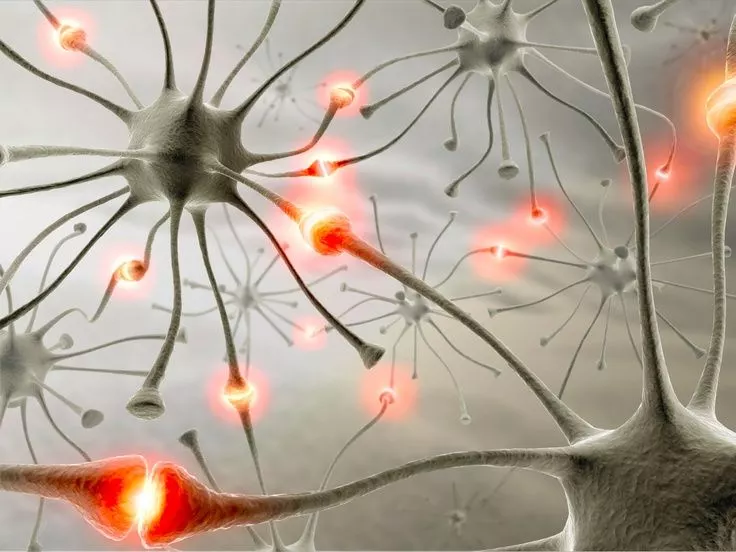“Every time we have a thought we make a chemical. If we have good, elevated thoughts or happy thoughts we make chemicals that make us feel good or happy. And if we have negative thoughts or bad thoughts or insecure thoughts we make chemicals that make us feel exactly the way we are thinking. So every chemical that is released in the brain is literally a message that feeds the physical body. Now the body begins to feel the way we are thinking.” ~ Joe Dispenza
All it takes is one look at any consumer review site to notice that people are much more likely to notice a bad experience than a good one. Often after having a negative experience at a restaurant, or with a customer service representative at a business, a person is more apt to get online and write a terrible review.
Whereas, a pleasant experience is talked about much less frequently. And even in our personal lives, most people, while having a thousand things going ‘well’ for them, will still talk about the one or two things not going their way when talking with a friend or close confidant.
It seems that our brains are still very much trained to focus on what is going ‘wrong’ in our lives rather than focusing on the proof that things are going ‘right.’
But why is this? And what effect will all this complaining have on our bodies and brains over time? Is it possible to re-wire our brains to begin to actually focus on the good in our lives rather than the bad?
Are you always looking for potential problems?
In his book, “Buddha Brain – The Practical Neuroscience of Happiness, Love and Wisdom”, Rick Hanson, stated, “your brain has a built-in negative bias, it generates an unpleasant background of anxiety, which for some people can be quite intense; anxiety makes it harder to bring attention inward for self-awareness or contemplative practice, since the brain keeps scanning to make sure there is no problem.”
For most people and especially for those living completely unconsciously, the scanning for alleged difficulties is happening on such a subtle level that we most likely have no idea that it’s even happening.
The subconscious mind lives each moment, and faces new people, places and things by first reviewing them for any potential threats. On a conscious level, this may manifest as not allowing ourselves to get too excited about things or setting ourselves up for the worst so that if or when it does happen, we can be prepared for the painful feelings that will inevitably occur.
Our present day ‘predators’ have become the painful emotions we try to resist, distract ourselves from or deny at all costs.
Things such as having our heart broken, getting criticized, losing money or the loss of our loved ones are all examples of things that we may mentally get ourselves prepared to experience way before the actual situation even occurs.
We are also very much hard-wired to approach life from a state of lack rather than abundance. The threat of ‘not enough’ is what drives many of us into addictions, compulsive shopping, over-eating, etc. By using things like meditation, deep breathing exercises and mindfulness in our day-to-day lives we will be able to see what our particular modern day ‘predators’ are.
Paying special attention to which thoughts, situations or beliefs prompt our ‘fight or flight’ response, or trigger the onset of the negative-based thought patterns that replay themselves on loop in our brain throughout the day will create an opportunity to go within and re-wire our thought patterns.
Re-Wiring the Brain For Positive Thinking
“Neurons that fire together wire together.” ~ Donald Hebb, neuropsychologist
Every thought, feeling, experience, physical sensation we go through forms a network of neurons in our brain.
The experiences that we repeat most will often begin to trigger the thoughts and emotions that we associate with that particular experience, regardless of the present moment.
For instance, we may have woken up almost every day dreading the fact that we have to go in to work that day.
Soon, the dread of going to work begins to make us think about getting off work and all of the things we have to do before we can go home. This causes us to feel overwhelmed and stressed. So the initial thought about our job leads to even more negative thoughts, and having these same emotions every day creates a neural network over time.
Left unchecked, one small negative thought or emotion can trigger an endless cycle of negative thought patterns playing on loop in our brain throughout the day.
By using mindfulness to really create some space between our awareness and the thoughts themselves, we can press the ‘pause’ button before the thoughts begin to take on a life of their own. Once we have created some awareness around our thought patterns, we must respond with a vibration that is much higher than the thoughts themselves.
Energetically speaking, the most powerful tools we have to use in response to complaints are love and gratitude. Both of these emotions are of a higher frequency than worry and fear. As silly as it may sound, telling each negative thought, ‘thank you,’ and ‘I love you,’ as soon as they arise begins to shift us into a place where each thought has nowhere to fester and must dissipate.
However, we must know why we are feeling thankful and loving towards each thought. To say these things without the belief that this is true renders this tactic essentially powerless.
By imagining our selves as a being of light that is here to unconditionally love all emotions, thoughts, behaviors etc. we begin to approach each one of these as another part of our inner child that has never been embraced before.
Imagine fear as a child that was constantly shushed or told to go away, sadness as a child that was never paid attention to, or anger as a child that was told his opinion is not valid.
The light of our being is the liberator of each emotion by offering it our loving attention and support. Soon painful emotions are no longer feared, but embraced. We also begin to re-write our subconscious to look for even more things each day to be grateful for.
New neural networks are created based on positive emotions and gratitude. Life then begins to reflect back to us our new found happiness and loving disposition.
Image sources:
Negative thoughts into positive ones
Article Sources:
Neurons fire together mean
Taking in the good







